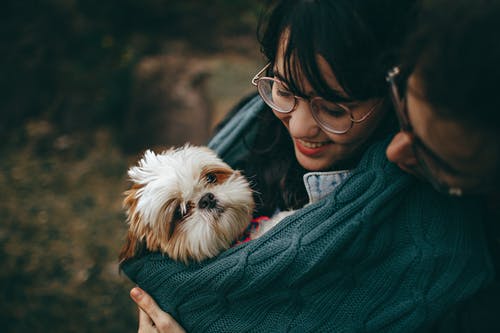
Have you ever wondered why we vaccinate humans? Well, the same reasons apply to our feline friends. Vaccines are essential in promoting your cuddly companions’ health and longevity. Properly vaccinated cats equate to healthier fur families and, by extension, happier pet parents.
Peeking Inside the Cat Immune System
As in humans, the cat immune system is a complex network of cells, proteins, organs, and structures that protect our loyal companions from harmful disease-causing organisms. Our cat’s built-in defense department works tirelessly to identify and extinguish foreign invaders.
However, this defense department can always use reinforcement, which is where vaccines come in. By bootstrapping the cat’s immune response, vaccines prepare it to battle potential threats, essentially turning it from a local security force into a trained defensive army.
The Indispensable Role of Vaccines for Cats
Vaccines play a crucial role in feline health. Much like a practice fire drill, vaccinations allow the cat’s immune system to prime its defense mechanism against common feline diseases. It’s vital to familiarize ourselves with the dangers we keep at bay with the help of routine cat vaccinations.
Common Afflictions Warded Off by Vaccination
- Feline Viral Rhinotracheitis: This distressing disease targets the upper respiratory tract, causing symptoms like sneezing, coughing, fever, and appetite loss. Vaccination aids in buffering cats against this illness.
- Feline Calicivirus: Another significant contributor to respiratory issues in cats, this virus can cause fever, ulcers, and pneumonia. With proper vaccination, your cat can be shielded from this problem.
- Feline Panleukopenia: This viral disease can be fatal, but vaccines effectively defend against it.
- Feline Immunodeficiency Virus (FIV): FIV undermines the cat’s immune system, increasing the risk of infections and cancer. Vaccination offers a protective shield against this deadly disease.
- Feline Leukaemia (FeLV): Like FIV, FeLV poses a severe threat to the cat’s defense system and may lead to leukemia. Vaccination is the best defense against this silent killer.
Journey Through the Cat Vaccination Process
A pet vaccinations clinic generally follows a custom sequential kitten vaccination schedule that usually begins at 6-8 weeks. By this time, the immunity granted by the mother’s milk, known as passive immunity, starts to wane, leaving the kitten vulnerable to many diseases. The vets will then administer a series of vaccines at slated intervals to equip the kitten with its own active immunity. Post-kittenhood, cats require revaccination or booster shots at regular intervals to keep their defenses up.
Separating Myths from Facts About Vaccine Safety for Cats
Cat vaccine safety is a topic often clouded with misconceptions. Let’s rectify this by setting the facts straight. Most vaccines contain modified live viruses that cause minimal side effects, such as mild swelling or discomfort at the injection site. The benefits offered by these vaccinations far outweigh the minor discomfort they may cause.
Protection and Prevention Through Vaccination
Vaccination stands as a sturdy wall between cats and various diseases. The immunity it bolsters within outdoor cats is particularly beneficial, as they combat more potential threats than indoor cats. One critical illness outdoor cats are more prone to is Feline AIDs, caused by FIV. Vaccination offers a sensible way for Feline AIDs prevention, keeping your adventurous outdoor cats safe and healthy.
Veterinary Procedures Beyond Vaccinations
Vaccinations are just the starting point in taking care of your cats. Apart from routine vaccination, several health situations could lead to instances where cat surgery is necessary. Routine health checks can help identify any underlying issues, helping treat the problem before it escalates.
Employing Cold Laser Therapy for Feline Health
Advancements in veterinary medicine have also brought forth therapies like cold laser therapy, which can mitigate pain, and inflammation and enhance tissue repair. Clinics like the Siskiyou Veterinary Hospital have been employing such methods to help expedite the healing process and improve their feline patient’s overall well-being.
Examining the Impact of Vaccines on Cat Health
Vaccinations for our feline companions serve multiple purposes, each contributing to maintaining a healthier, safer, and happier lifestyle for our beloved pets.
Highlighting the benefits of these important injections:
- Disease prevention: The primary goal of vaccinations is to shield cats from common diseases, promoting overall health.
- Control of Infection Spread: Vaccines are essential in restricting the spread of dangerous diseases in the feline community and keeping your cat and others safe.
- Longevity: Vaccination significantly contributes to a cat’s lifespan by guarding it against life-threatening diseases.
- Lowered Veterinary Expenses: Prevention is always cheaper than cure. Vaccinating your cats can reduce veterinary costs linked to treating preventable diseases.
- Improved Quality of Life: Vaccinated cats are generally healthier and exhibit a higher quality of life.
Conclusion
Feline vaccinations could make the difference between a long, healthy life and a potentially compromised one. Engaging in regular vaccinations not only champions the disease-fighting capacity of your lovable furball but also fortifies them against common feline diseases. Armed with the right knowledge and informed choices, we can all contribute to our pets’ long, healthy, and joyful lives.
